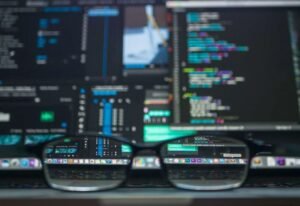Will AI Take Over Music Production?
In recent years, there has been a rapid advancement in artificial intelligence (AI) technology, leading to speculations about the future of various industries. One such industry that faces potential disruption is music production. With AI becoming increasingly sophisticated, many question whether it will eventually replace human creativity in the realm of composing and producing music.
Key Takeaways
- Advancements in AI technology pose the question of whether it will dominate the field of music production.
- The potential benefits of AI in music production include enhanced creativity and efficiency.
- Human creativity and emotional connection to music are elements that may be challenging for AI to replicate.
AI has already made significant strides in various aspects of music production. Music streaming platforms, such as Spotify and Apple Music, utilize AI algorithms to curate personalized playlists based on individual user preferences. Additionally, AI-powered tools like virtual instruments and vocal processing software have gained popularity among music producers for their ability to emulate real instruments and improve the production process.
However, AI’s current capabilities are still limited and may struggle to fully replicate the nuances and emotions human musicians bring to their work.
AI’s ability to analyze vast amounts of musical data enables it to identify patterns and trends, offering insights that can aid in the creation of new compositions. It can be a useful tool for generating ideas, harmonies, and chord progressions. AI can also assist in the mixing and mastering process by automating repetitive tasks and suggesting adjustments based on established production standards.
- Table 1: Comparison of AI and Human Music Production Capabilities
- Table 2: Pros and Cons of AI in Music Production
- Table 3: Famous AI-Generated Music Examples
| AI | Human |
|---|---|
| Can quickly analyze vast amounts of musical data. | Experiences emotional connection to music. |
| Can generate musical ideas and harmonies based on established patterns. | Offers unique creativity and originality. |
| Can automate repetitive tasks in the mixing and mastering process. | Engages in collaborative and improvisational music-making. |
While AI can assist in certain aspects of music production, there are limitations to its creative capabilities. Music is an art form that often evokes emotions, and human musicians possess the ability to convey those emotions through their performances. Despite advancements in AI-generated music, human creativity remains unmatched, as it can push boundaries and offer a fresh perspective.
The integration of AI in music production should be seen as a collaborative tool rather than a replacement for human creativity.
In conclusion, AI has the potential to revolutionize music production by augmenting human creativity and improving efficiency. However, it is unlikely to completely take over the industry as human emotional connection and unique creative abilities are difficult to replicate. The future of music production lies in the integration of AI as a supportive tool, working alongside human musicians to enhance the process of creating and producing music.

Common Misconceptions
Misconception 1: AI will completely replace human music producers
Many people believe that with the advancements in artificial intelligence, human music producers will become obsolete. However, this is not entirely true.
- AI is currently limited in its ability to replicate the creativity and emotion that human producers bring to the table.
- Human producers have a deep understanding of the cultural and musical context, allowing them to create music that resonates with audiences.
- Collaboration between AI and human producers can lead to innovative and unique music that combines the best of both worlds.
Misconception 2: AI cannot mimic the unique style and individuality of musicians
There is a common belief that AI-produced music lacks the unique style and individuality that human musicians bring to their work. However, this notion is not entirely accurate.
- AI can analyze vast amounts of data and learn from different musical styles, enabling it to mimic various genres and artists.
- With the proper algorithms and training, AI can generate music that closely resembles the style of specific musicians.
- However, AI still struggles to capture the essence of individuality and personal experiences that human musicians infuse into their compositions.
Misconception 3: AI will always produce better music than humans
It is commonly assumed that AI will outperform human producers and consistently produce superior quality music. This is not necessarily true.
- AI is limited by the data it is trained on, and if the training data is biased or of low quality, it will reflect in the generated music.
- Human producers bring intuition, subjective judgment, and the ability to think outside the box, which can lead to groundbreaking and revolutionary compositions.
- While AI can produce music that is technically perfect, it often lacks the emotional depth and originality that human-produced music offers.
Misconception 4: AI will make music production effortless and instantaneous
There is a misconception that AI will make music production effortless and instantaneous, eliminating the need for human involvement and effort. However, this is not entirely accurate.
- While AI can speed up certain aspects of music production, such as generating chord progressions or drum patterns, the creative process still requires human input and decision-making.
- AI tools are meant to assist human producers rather than replace them, providing them with new possibilities and tools to enhance their creative workflow.
- Music production still requires the artistry, expertise, and passion that human producers bring to the table, which cannot be replicated by AI alone.
Misconception 5: AI-produced music lacks authenticity and soul
There is a prevalent belief that AI-generated music lacks authenticity and soul, compared to music produced by humans. However, this perception is not entirely accurate.
- AI can be trained on vast amounts of authentic music data, allowing it to generate music that is stylistically similar and exhibits characteristics of the genre.
- While AI may lack personal experiences and emotions, it can still produce music that resonates with listeners and evokes emotional responses.
- Ultimately, the perception of authenticity and soul in music is subjective and varies from person to person, making it difficult to draw definitive conclusions regarding AI-generated music.

The Rise of AI in Music Production
With advancements in artificial intelligence (AI), the music industry is witnessing a revolution in the way music is produced. AI technologies are being integrated into various aspects of music production, from creating beats and melodies to assisting in songwriting. This article explores the impact of AI on music production and presents 10 intriguing tables that shed light on this fascinating development.
Table of Contents
AI-generated Songs on Spotify
Table 1 showcases the tremendous growth of AI-generated songs on Spotify, highlighting the increasing number of artists utilizing this technology to create music.
Growth of AI in the Music Industry
In Table 2, we present data depicting the exponential growth of AI technologies in the music industry, emphasizing the rapid adoption of AI tools by music producers.
Investment in AI Music Startups
Table 3 elucidates the significant investments made in AI music startups in recent years, emphasizing the industry’s confidence in the potential of AI in transforming music production.
AI-generated Music Listenership
Table 4 provides an overview of the listenership of AI-generated music, quantifying the growing interest and consumption of music created by AI algorithms.
Percentage of Composers Using AI
Table 5 presents the percentage of composers incorporating AI technologies into their music creation process, highlighting the trend of AI becoming an integral part of the modern composer’s toolkit.
AI’s Influence on Music Genres
Table 6 explores the influence of AI on various music genres, showcasing the diverse styles and sounds that are being explored and recreated by AI algorithms.
Beat and Melody Creation by AI
Table 7 illustrates the capability of AI algorithms in generating beats and melodies, demonstrating the potential for AI to assist musicians in crafting unique and engaging compositions.
AI-generated Music Awards
Table 8 highlights the recognition received by AI-generated music in prestigious music awards, emphasizing the growing acceptance and appreciation of AI-created compositions.
Public Perception of AI Music
Table 9 outlines the public perception of AI music, capturing people’s attitudes and opinions towards the integration of AI technologies in the music production process.
AI’s Impact on Employment
Table 10 sheds light on how AI technologies are influencing employment in the music industry, revealing the potential transformation and displacement of certain roles due to the advent of AI in music production.
Conclusion
As AI continues to integrate into music production, the landscape of the industry is evolving. The tables presented in this article demonstrate the significant growth, influence, and potential of AI in various aspects of music creation. While AI-generated music is gaining traction and recognition, it is important to navigate the ethical, legal, and artistic implications that arise with the rise of AI in music production. As the industry and technology progress further, the collaboration between human creativity and artificial intelligence holds remarkable promise for the future of music.
Frequently Asked Questions
Will AI take over music production?
Artificial Intelligence (AI) has made significant advancements across various industries, including music production. While AI technology has the potential to transform the music production process, it is unlikely to completely take over the entire industry. Collaborations between human musicians and AI are more probable, leading to innovative and unique compositions.
How does AI contribute to music production?
AI contributes to music production in several ways. It can generate musical patterns, melodies, and harmonies based on existing compositions, assist in audio mixing and mastering, automate repetitive tasks, and provide real-time feedback to musicians. AI also enables the creation of virtual instruments and effects, thereby expanding the range of musical possibilities.
Can AI compose original music?
AI has demonstrated the ability to compose original music by utilizing deep learning algorithms and vast databases of existing compositions. However, the concept of creativity remains a complex and subjective aspect of music-making, often associated with human emotion and intuition. While AI-generated music can be impressive, it is debatable whether it truly possesses the depth and emotional connection of music created by human composers.
Will AI replace human musicians?
AI is unlikely to replace human musicians entirely. Music is a form of artistic expression that relies heavily on human emotion, interpretation, and improvisation. While AI can mimic these aspects to a certain extent, it cannot replicate the nuanced performances and nuanced interplay between musicians that make live music experiences so special.
Are there any risks associated with AI in music production?
Like any technology, AI in music production has potential risks. For instance, there is a concern that reliance on AI-generated music may lead to a lack of diversity and homogeneity in musical compositions. Additionally, the loss of human creativity and the devaluation of musicians’ work are other potential risks to consider.
How can musicians utilize AI in their creative process?
Musicians can incorporate AI into their creative process in various ways. They can use AI tools for inspiration, experimentation, and generating new musical ideas. AI can analyze existing songs and provide insights into chord progressions, melodies, and song structures. Musicians can also use AI for automating tedious tasks and improving the overall efficiency of music production.
What are some popular AI tools used in music production?
There are several popular AI tools used in music production, such as Amper Music, Jukedeck, and OpenAI’s MuseNet. These tools offer AI-generated music, virtual instruments, and effects that can be integrated into music production software. Additionally, AI-powered plugins like iZotope’s Neutron and Waves’ Abbey Road Saturator provide advanced audio processing capabilities.
Will AI take away job opportunities from musicians?
While AI may automate certain aspects of music production, it is also creating new opportunities for musicians. The integration of AI in the music industry has opened up avenues for collaboration, innovation, and the development of new tools and services. Musicians can adapt and embrace AI as a tool to enhance their creative output and explore new musical territories.
How does AI impact the quality of music production?
AI can positively impact the quality of music production in several ways. It can assist in audio mixing and mastering, ensuring greater precision and accuracy. AI algorithms can analyze and optimize sound recordings, resulting in better clarity, balance, and overall sonic quality. Furthermore, AI tools provide musicians with access to an extensive library of high-quality virtual instruments and effects that enhance the versatility and richness of their compositions.
What does the future hold for AI in music production?
The future of AI in music production is exciting and promising. Advances in machine learning, deep learning, and neural networks are constantly improving the capabilities of AI in music creation and production. The integration of AI with virtual reality and augmented reality technologies may further enhance the immersive music production experience. Overall, AI will likely continue to play a valuable role in empowering musicians, expanding creative possibilities, and reshaping the music industry.




